On the morning of November 3, the National Assembly discussed in the hall a number of contents with different opinions of the draft Land Law (amended).
Conflict between people whose land was recovered because of 2 prices
Speaking, delegate Tran Van Tuan (Bac Giang delegation) highly appreciated the spirit of seeking feedback to perfect the draft Law of the drafting agency.
At the same time, the delegate suggested that the National Assembly continue to discuss and consider approving the draft Law cautiously, but also urgently to resolve as soon as possible the difficulties and problems posed by the shortcomings of the current Land Law, while avoiding difficulties arising from the mentality of waiting for the Land Law (amended) to be promulgated, ensuring consistency with the Housing Law, the Law on Real Estate Business and related laws.
Raising the issue arising from practice that needs to be resolved more thoroughly through this law amendment, delegate Tuan suggested that Article 79, which regulates cases where the State reclaims land for socio-economic development for national and public interests, lists 31 specific cases.
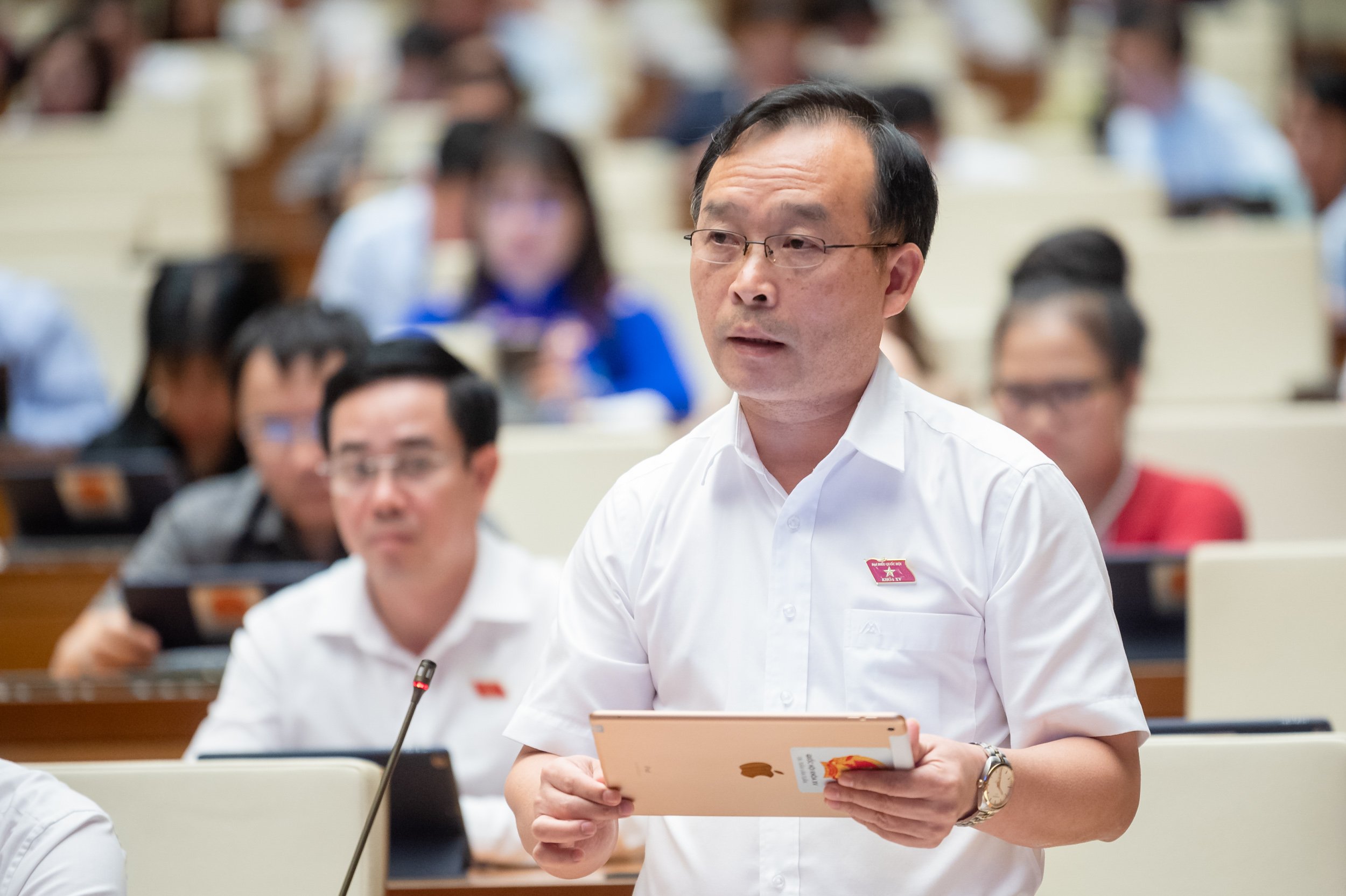
Delegate Tran Van Tuan, Bac Giang delegation (Photo: Quochoi.vn).
However, Mr. Tuan is concerned that listing such specific cases may not cover everything. Moreover, such a regulation still cannot completely solve one of the biggest problems that is the State reclaiming land, landowners are compensated according to the price list issued by the State, while businesses and landowners agree to transfer land use rights to implement projects, the price is often higher.
“This is the reason why people always feel disadvantaged and lack consensus when the State reclaims land. On the other hand, when implementing projects, businesses have to negotiate the transfer of land use rights and also face many difficulties,” said Mr. Tuan.
According to Mr. Tuan, there are many cases where businesses have to spend years negotiating, even having to “collude” to negotiate a higher price, which is unfair to the rest. However, businesses still fall into a “half-crying, half-laughing” situation, when they have agreed to transfer over 90% of the area, or even higher, but still cannot implement the project even though only a few do not agree.
According to Mr. Tuan, this causes businesses to increase costs, waste resources, and lose investment opportunities. This is also the reason for the increase in complicated complaints and petitions in localities.
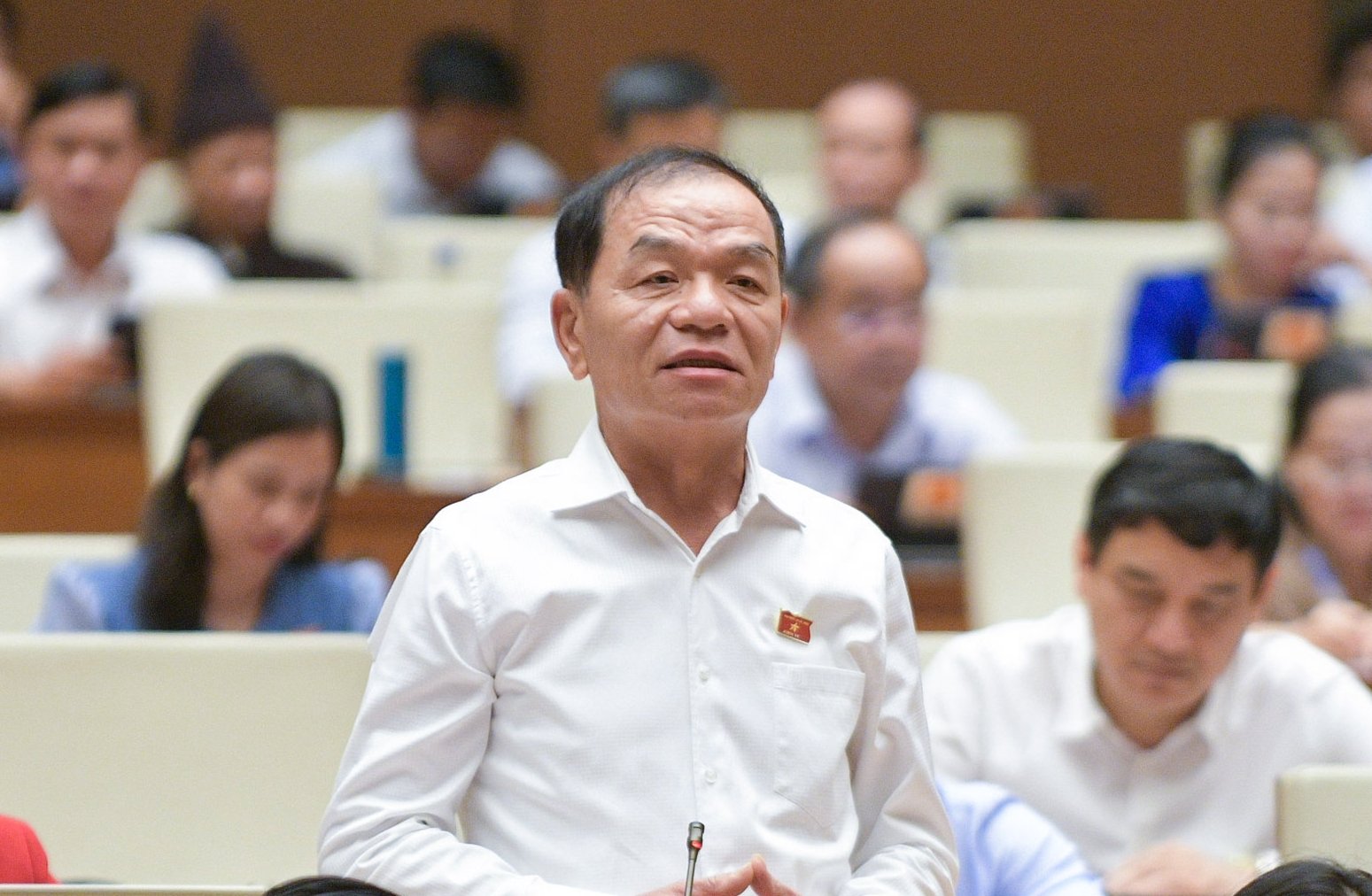
Delegate Le Thanh Van, Ca Mau delegation (Photo: Quochoi.vn).
Sharing the same view, delegate Le Thanh Van (Ca Mau delegation) also said that the distinction between public and private projects has led to a situation of two prices. State-recovered projects have different prices, while private projects with negotiated prices have different prices.
"This creates inequality and easily leads to conflicts between investors and people whose land is recovered. There are even conflicts between people whose land is recovered because of two prices," said Mr. Van, who proposed to abolish this discriminatory regime and that the State should recover land through planning to serve socio-economic development.
Accordingly, Mr. Van proposed that for residential, commercial, and urban land projects, the State should clear the land and hand over clean land to businesses participating in auctions and project bidding. In the 1/500 planning, the State must define the space and scope of development, almost a product of the planning to auction land and bid for projects.
Mr. Van proposed to use all the proceeds from the auction and bidding for the project for three purposes: to pay back the State's investment in detailed planning, infrastructure connection to the project boundary fence; compensation for site clearance, resettlement support; and the remaining amount to invest in socio-economic infrastructure to serve the common interest.
It is unreasonable for a seller to sell something he does not have.
From the above analysis, delegate Tran Van Tuan proposed to the National Assembly to consider amending and supplementing relevant Article 79 in the draft law in the direction of the State reclaiming land in cases of implementing socio-economic development projects, especially reclaiming to change the purpose of use and implementing projects.
He also gave four specific reasons for this proposal. Firstly, with 31 cases of land recovery by the State as stipulated in Article 79, the scope of coverage is quite broad, the remaining cases of socio-economic development projects subject to land use rights transfer agreements are not many.
Second, there is no specific, convincing basis for distinguishing cases where the State reclaims land for socio-economic development in the national and public interest from other cases of land use rights transfer.
“After all, all cases of land use rights transfer must comply with the law and be consistent with socio-economic development plans and projects for the national and public interest,” he said.
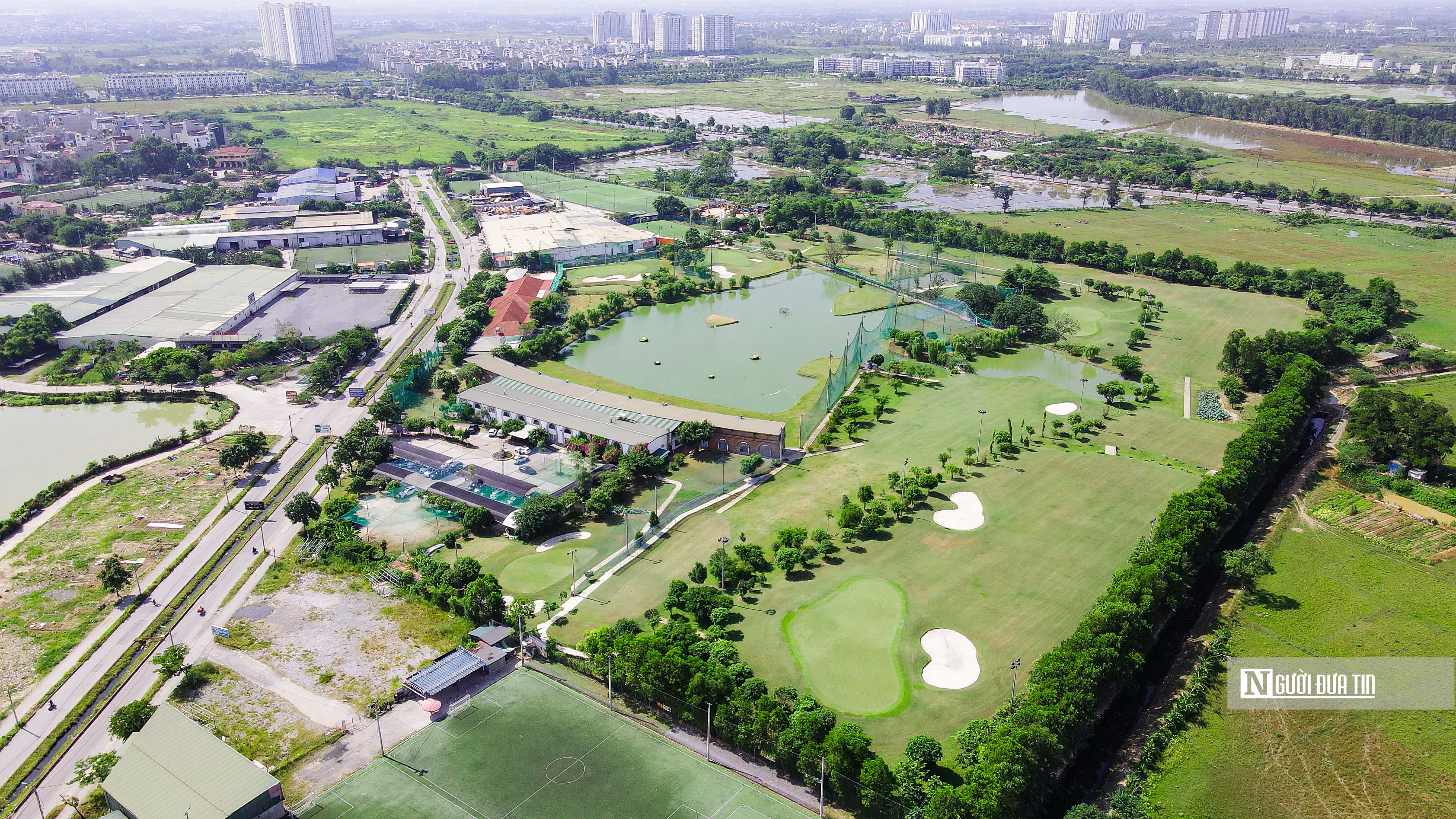
National Assembly delegates proposed to specify the land price compensated by the State for land acquisition to be close to market price (Photo: Huu Thang).
Third, in reality, when businesses receive land use rights transfers, it is usually agricultural land, then changes the land use purpose to carry out projects, while landowners when converting agricultural land often demand higher prices, equivalent to other types of land.
“In essence, it can be said figuratively that, “the seller is selling something he does not have. This is absurd!”, delegate Tuan emphasized.
Fourth, if the State is allowed to reclaim land for socio-economic development projects, it will help to completely overcome the difficulties and obstacles in implementing the current Land Law. “In particular, the number of petitions and complaints will decrease, ensuring more fairness, openness and transparency,” he said.
Along with the above proposal, the delegate also proposed to specify the land price compensated by the State for land acquisition to be close to the market price, and a mechanism to regulate differential land rent so that people whose land is acquired are not disadvantaged .
Source


![[Photo] General Secretary To Lam meets and expresses gratitude to Vietnam's Belarusian friends](https://vphoto.vietnam.vn/thumb/1200x675/vietnam/resource/IMAGE/2025/5/11/c515ee2054c54a87aa8a7cb520f2fa6e)

![[Photo] General Secretary To Lam concludes visit to Russia, departs for Belarus](https://vphoto.vietnam.vn/thumb/1200x675/vietnam/resource/IMAGE/2025/5/11/0acf1081a95e4b1d9886c67fdafd95ed)

![[Photo] General Secretary To Lam arrives in Minsk, begins state visit to Belarus](https://vphoto.vietnam.vn/thumb/1200x675/vietnam/resource/IMAGE/2025/5/11/76602f587468437f8b5b7104495f444d)



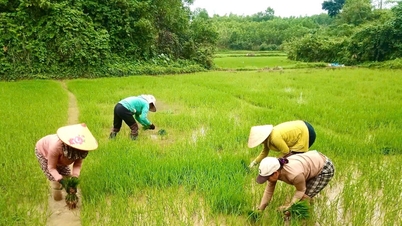



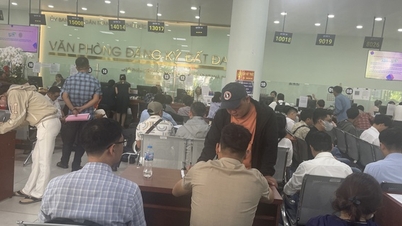





















![[Photo] National Assembly Chairman Tran Thanh Man attends the Party Congress of the Committee for Culture and Social Affairs](https://vphoto.vietnam.vn/thumb/1200x675/vietnam/resource/IMAGE/2025/5/11/f5ed02beb9404bca998a08b34ef255a6)












































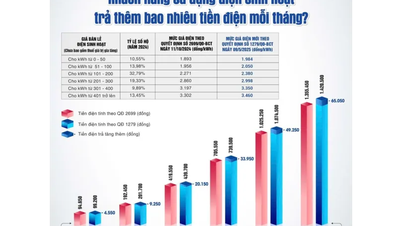



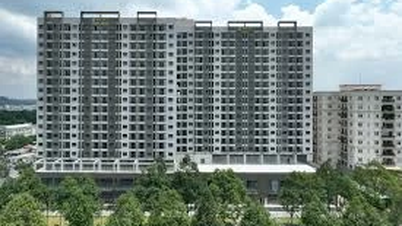

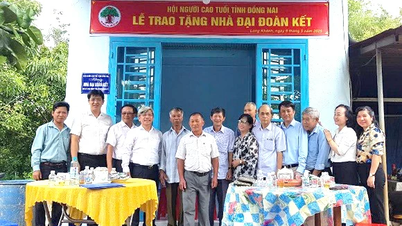









Comment (0)